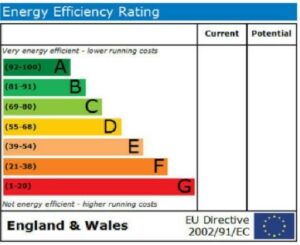Integrating Sustainability into our developments
Our house types include a range of sustainable design features ranging from highly energy efficient walls and windows, to insulated loft space. This reduces running costs for our customers and helps cut carbon emissions.
Inside our homes we use energy efficient fixtures and fittings, including 100% low energy light fittings and LED recessed down lights. All appliances that we offer as standard options in our homes are at least A rated for energy efficiency.
All new Taylor Wimpey homes have water meters fitted, as well as low flow taps and showers, and dual flush toilets.
Energy Rating

Your new home has been built to meet, and in some cases exceed, the latest building standards on heat loss. To find out more about the energy rating of your home, please refer to the Energy Performance Certificate (EPC) which can be found in your Home Information Box.
Energy Performance Certificate
Your energy performance certificate (EPC) shows how energy efficient your home is currently and gives suggestions on how you can improve this in the future.
There are two ratings shown on the certificate, both are shown on a scale of 1 to 100 and in a graphical design A to G. The higher the rating, the less impact your home has on the environment.
The energy efficiency rating is calculated on the energy used to heat your home, and the environmental impact on how much CO2 your home will produce each year through heating and lighting.
You will need your certificate if you decide to move home but if you need to it can be downloaded from the EPC register: www.epcregister.com.
Saving Energy
Simple ways to save energy, money and help prevent climate change as suggested by the Energy Saving Trust:
- Close curtains and blinds at dusk to stop heat escaping through the windows.
- Always turn off lights when you leave a room; a 100W light bulb left on for half an hour creates enough CO2 to fill a party balloon; it is calculated that in the UK we waste £180million a year by leaving lights on unnecessarily (enough CO2 to fill 150,000 hot air balloons).
- Don’t leave appliances on stand-by and remember not to leave appliances on charge unnecessarily (e.g. mobile phone chargers)
- If you’re not filling up the washing machine or dishwasher, use the half-load or economy programmer.
- Only boil as much water as you need (but remember to cover the element if you’re using an electric kettle).
- A dripping hot water tap wastes enough hot water to fill half a bath for that day. Ensure that taps are turned off and leaks repaired promptly.
- When purchasing new appliances, look for the Energy Saving Recommended logo. Energy Saving Recommended appliances are the most efficient in their category) and could each save you up to £45 per year.
- Turning your thermostat down by 1°C could cut your heating bills by up to 10%.
Saving Water
Your home is fitted with the following water saving fittings:
- Dual flush toilets, which have two separate flushing mechanisms that use different amounts of water
- Hand wash basin taps with flow restrictors and aerators, which limit the rate at which water flows and mix air with the water as it comes out of the tap
Some simple ways to reduce your water usage:
- Have a shower instead of a bath
- Don’t leave the tap running while you brush your teeth
- Repair dripping taps
Responsible Purchasing
Here are some suggestions of ways that you can help the environment when you are out shopping:
Choose appliances with a high energy efficiency rating. The scale runs from A, the most efficient, to G, the least efficient. A leaflet with more information can be found in your box file
- Buy local produce, e.g., from farmers markets
- Avoid buying disposable items, such as single use cameras Reuse plastic bags or buy “bags for life”
- Donate unwanted items to charity shops or give them away on websites such as “Freecycle”, www.ukfreecycle.org Drink tap water rather than bottled water
- Use local businesses
- Buy Fair Trade products and those made from recycled materials Buy fruit and vegetables that are in season
Sustainable DIY
Here are some suggestions on how you can consider the environment when doing DIY: Try to use recycled and sustainable materials
- Make sure any wood you use comes from a renewable source
- Use flooring made from coir, sisal, jute, cork, wool or real linoleum
- Avoid using MDF, uPVC, wood preservatives, strippers, coating removers, brush cleaners, etc.
- Try to use paints with a low VOC (volatile organic compounds) rating, or look for those with a European Eco label Use plant-based stains and sealers or water-based products
- Dispose of any DIY products responsibly. If in doubt call your local council
Useful Link
Green Choices is an independent website that provides information on everyday choices that people can make to help protect the environment.
Website www.greenchoices.org